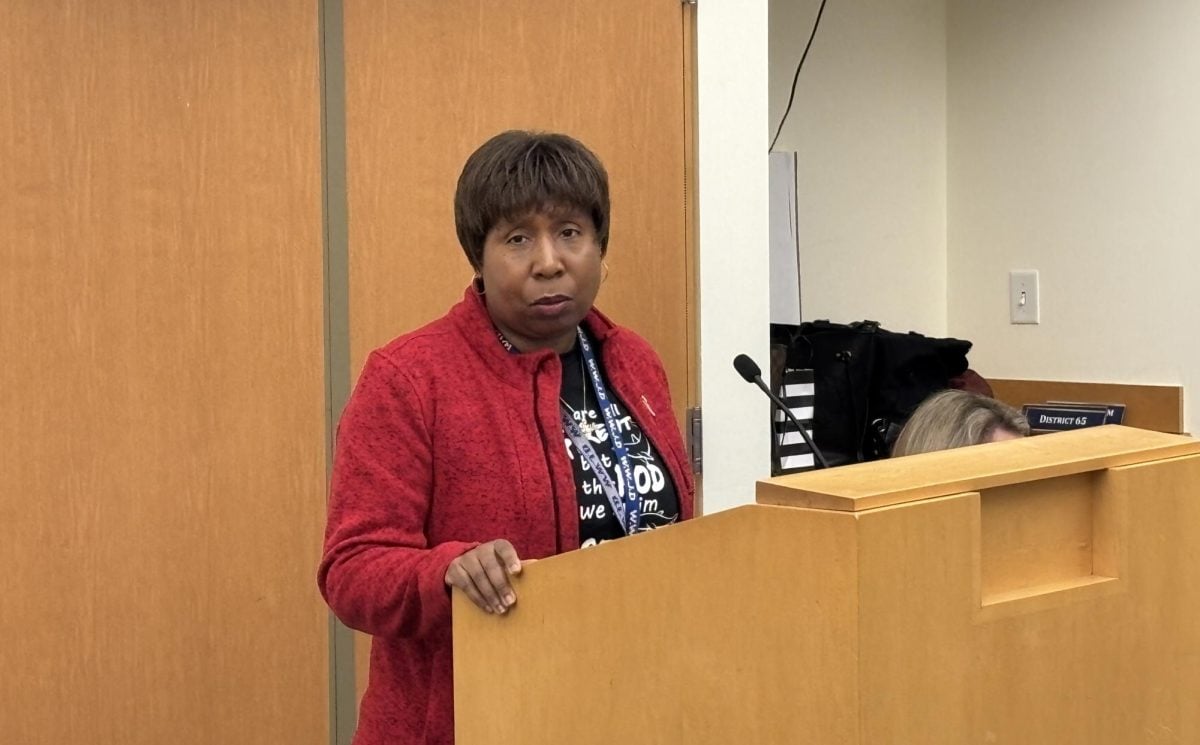In preparation for Illinois’ transition to assessments covering more rigorous Common Core State Standards, state officials are increasing student performance expectations on the Illinois Standards Achievement Test.
Measures are in place at Evanston-Skokie District 65 to ensure students succeed under these higher standards, superintendent Hardy Murphy wrote in a letter to parents last week. Efforts to improve classroom instruction and performance evaluations are some of the D65 efforts highlighted this school year to prepare students for Common Core standards and multi-state assessments geared toward college and career readiness.
The Illinois State Board of Education currently administers the ISAT in reading and mathematics to third through eighth graders in the spring.
Come the 2014-2015 school year, Illinois will replace its math and English language arts ISATs with tests developed by the Partnership for Assessment of Readiness for College and Careers, a consortium of 23 states and the U.S. Virgin Islands.
As part of the state’s transition to PARCC assessments, about 20 percent of the questions on the March 2013 reading and math ISATs will assess Common Core State Standards, according to the ISBE website.
ISBE spokeswoman Mary Fergus said the standards, which have been fully adopted by 45 states and the District of Columbia, were an effort to “stop rethinking the wheel” and having states come together to develop more rigorous standards.
“There are a lot of things in common that whether you are a student in Chicago or Montana that you need to know,” Fergus said.
At an October District 65 board meeting, officials from several schools discussed their instructional leadership teams, a marked change in how the district approaches school improvement.
Through strategic distributed instructional leadership, teachers and administrators share responsibility for developing strategies to improve instruction. In his letter, Murphy said these teams ensure instructional practices are “a dynamic part” of curriculum design and delivery.
State officials are also raising ISAT performance levels, which Fergus said were not aligned to college and career readiness, unlike the Prairie State Achievement Exam administered to eleventh graders. The PSAE includes the ACT.
Currently, there’s a “disconnect” between the ISAT and PSAE proficiency levels, Fergus said. On this year’s ISAT exams, 82 percent of students met or exceeded state standard, while only 51 percent met or exceeded standards on the PSAE.
“We must raise our expectations at the elementary level so that students are on track to leave high school prepared to succeed in the work force, career and daily life,” State Superintendent Christopher Koch said in early November.
Raising performance levels, however, will lead to a “significant drop” in students meeting or exceeding those higher expectations, Koch said. Fergus said in January or February 2013, the ISBE will provide documentation on how schools would have performed on the 2012 ISAT under the new performance levels.
How this would affect student growth measures under District 65’s recently revised performance appraisal system remains unclear.
The revised system, which was unveiled to much pushback from teachers and Jean Luft, president of union District 65 Educators’ Council, makes significant changes to student growth, which represents 50 percent of a teacher’s rating.
Students are placed into one of four quartiles, from college and career readiness to the lowest quartile. For teachers to receive an “excellent” student growth rating, the percentage of students meeting growth targets in most categories must exceeds district figures from the previous year. None of the categories may reflect a drop in performance.
Student growth, however, is measured through several assessments, including those written by the district and even measures selected by teachers at the beginning of the year.
Luft, at a November board meeting, said 98 percent of teachers surveyed do not trust the system to determine an accurate performance rating.
On Dec. 3, District 65 board members will discuss voting on the revised performance appraisal system.
In addition to instructional leadership teams and the revised performance appraisal system, District 65 is also increasing its emphasis on writing, Murphy said in the letter.
Once March 2013 rolls around, Evanston third graders may answer a question on a character’s motivations, not knowing that describing character actions is a Common Core standard.
The potential for dropping student performance aside, Fergus said students stand to benefit from the Common Core transition.
“We’re working to prepare students for success in their own communities but also the nation and the world,” she said.

















